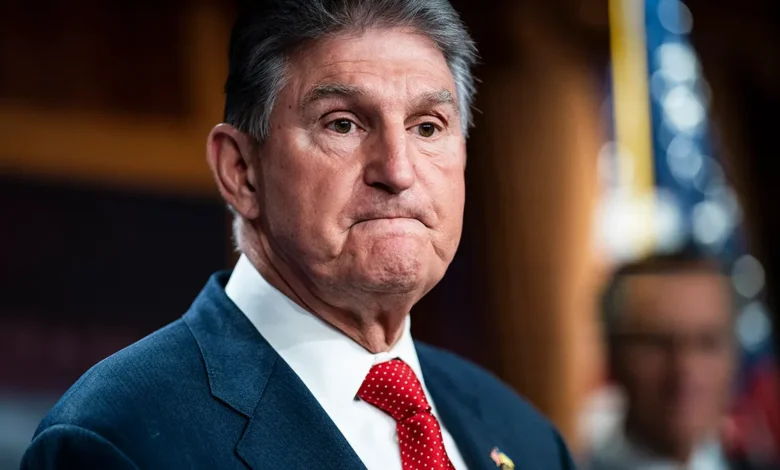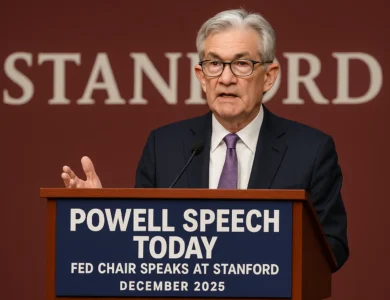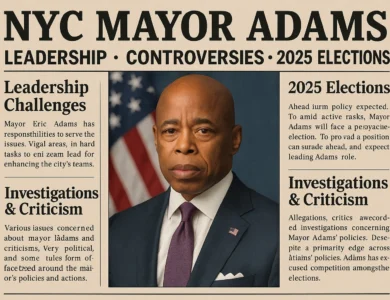
Joe Manchin, the senior Senator from West Virginia, has long been characterized as one of the most enigmatic figures in modern American politics. For over a decade, the conservative Democrat carved out a unique niche as a moderate voice willing to cross party lines, earning both praise and criticism from constituents and colleagues alike. However, three specific controversial votes during the Biden administration fundamentally altered public perception of Manchin’s legacy, transforming him from a respected centrist into one of the most polarizing figures in contemporary politics.
The West Virginia Senator entered the national spotlight as a politician who could bridge the growing partisan divide in Washington. His moderate stance on key issues, combined with his representation of a deeply Republican state while maintaining Democratic party affiliation, made him a crucial swing vote in an evenly divided Senate. This unique position granted Manchin unprecedented influence over Democratic legislation and national policy direction.
However, between 2021 and 2022, three critical votes would forever change how Americans view Joe Manchin’s political career. These decisions not only affected major pieces of legislation but also raised questions about party loyalty, constituent representation, and the role of moderate politicians in an increasingly polarized political landscape. The ramifications of these votes continue to shape discussions about Manchin’s Senate record and his overall contribution to American governance.
The Political Context: Understanding Manchin’s Unique Position
West Virginia’s Political Transformation
To understand the significance of Joe Manchin’s controversial decisions, one must first examine the political landscape of West Virginia. The state has undergone a dramatic political transformation over the past two decades, shifting from a traditional Democratic stronghold to one of the most Republican states in the nation. This shift created a complex political environment for Manchin, who found himself representing constituents whose views often diverged significantly from national Democratic priorities.
Manchin’s Senate tenure began in 2010, following his successful gubernatorial term. During his early years, his moderate approach and willingness to work across the aisle earned him respect from both parties. His voting record reflected this bipartisan approach, supporting some Republican initiatives while maintaining core Democratic positions on issues like healthcare and social security.
The coal industry influence in West Virginia also played a crucial role in shaping Manchin’s political positions. As a state heavily dependent on fossil fuel extraction, environmental regulations and climate change policies often put Manchin at odds with his own party’s agenda. This tension would eventually manifest in some of his most controversial Senate votes.
Vote #1: The Build Back Better Act – A Legacy-Defining Opposition
The Legislation That Could Have Been
The Build Back Better Act represented President Biden’s most ambitious domestic policy initiative, encompassing climate action, social programs, and economic reforms totaling approximately $1.75 trillion. The legislation aimed to address climate change through clean energy investments, expand social safety nets, and provide universal pre-K education, among other provisions.
Joe Manchin’s opposition to the Build Back Better Act became the defining moment of his later Senate career. Despite months of negotiations and multiple revisions to accommodate his concerns, Manchin ultimately refused to support the legislation in December 2021. His decision effectively killed the bill, as Democrats needed unanimous support from their caucus to pass it through budget reconciliation.
The Economic and Environmental Implications
Manchin’s rejection centered on concerns about inflation, government spending, and the legislation’s potential impact on fossil fuel industries. He argued that the massive spending package could exacerbate inflation during an already challenging economic period. Additionally, the climate provisions within the bill, including investments in renewable energy and electric vehicle infrastructure, conflicted with his support for traditional energy sectors crucial to West Virginia’s economy.
The environmental community viewed Manchin’s opposition as a betrayal of critical climate action. Environmental groups had viewed the Build Back Better Act as America’s best opportunity to address climate change through federal legislation. Manchin’s vote against the bill was seen as prioritizing short-term political considerations over long-term environmental sustainability.
Political Ramifications and Party Relations
The fallout from Manchin’s Build Back Better opposition was swift and severe. Progressive Democrats accused him of obstructing the party’s agenda and betraying campaign promises made to American voters. The decision strained his relationships within the Democratic caucus and led to intense criticism from party leadership.
However, Manchin defended his position by emphasizing his responsibility to represent West Virginia constituents rather than national party interests. He argued that the legislation would have harmed his state’s energy sector and contributed to economic instability. This defense highlighted the ongoing tension between party loyalty and constituent representation that defines much of Manchin’s controversial Senate record.
Vote #2: Filibuster Reform – Preserving Senate Traditions or Obstructing Progress?
The Filibuster Debate in Modern Politics
The Senate filibuster has become one of the most contentious procedural issues in modern American politics. Democrats argued that filibuster reform was necessary to pass critical legislation on voting rights, while Republicans viewed any changes as an assault on Senate traditions and minority party rights.
Joe Manchin’s stance on filibuster reform proved equally controversial as his Build Back Better opposition. Throughout 2021 and 2022, pressure mounted on Manchin to support eliminating or modifying the filibuster to advance Democratic priorities. However, he consistently refused to support any changes to the 60-vote threshold required to advance most legislation.
Voting Rights and Legislative Consequences
The voting rights implications of Manchin’s filibuster position were particularly significant. Democrats sought to pass the Freedom to Vote Act and the John Lewis Voting Rights Advancement Act, both of which Republicans opposed. Without filibuster reform, these bills remained stalled in the Senate despite having majority support.
Manchin’s refusal to support filibuster changes effectively blocked voting rights legislation that many Democrats considered essential to protecting democratic institutions. Civil rights organizations and progressive activists criticized this position, arguing that Manchin’s vote prioritized procedural traditions over fundamental democratic rights.
Constitutional and Procedural Justifications
Manchin defended his filibuster position by emphasizing the importance of bipartisan cooperation and minority party rights. He argued that eliminating the filibuster would further polarize the Senate and undermine the institution’s role as a deliberative body designed to encourage consensus-building.
The West Virginia Senator also expressed concerns about potential future consequences of filibuster elimination. He warned that removing the 60-vote threshold would enable either party to impose their agenda without minority input, potentially leading to more extreme policy swings when control of the Senate changes hands.
Vote #3: Climate and Energy Legislation – Balancing State Interests and Global Responsibilities
The Inflation Reduction Act Negotiations
Following the collapse of Build Back Better, Democrats attempted to salvage climate and energy provisions through what eventually became the Inflation Reduction Act. This legislation represented a significantly scaled-back version of the original climate agenda, focusing primarily on clean energy investments and deficit reduction.
Joe Manchin’s role in shaping the Inflation Reduction Act was complex and controversial. While he eventually supported the final version, his demands for fossil fuel provisions and pipeline approvals drew criticism from environmental advocates. The legislation included requirements for federal oil and gas lease sales that many viewed as contradictory to its climate goals.
Environmental Justice and Community Impact
The environmental justice implications of Manchin’s energy positions extended beyond West Virginia. His support for continued fossil fuel development was seen as perpetuating environmental harms in vulnerable communities, particularly those already disproportionately affected by pollution and climate change.
Manchin’s voting record on environmental issues reflected the complex intersection of state economic interests and national environmental policy. While he supported some clean energy investments, his simultaneous advocacy for fossil fuel development created tensions within the environmental movement and the Democratic Party.
Economic Development vs. Climate Action
The tension between economic development and climate action remained central to understanding Manchin’s controversial positions. He consistently argued that aggressive climate policies would harm West Virginia’s economy and destroy jobs in traditional energy sectors. This perspective put him at odds with environmental groups and progressive Democrats who viewed rapid decarbonization as essential.
Manchin’s approach to balancing these competing interests involved supporting an “all-of-the-above” energy strategy that included both renewable and fossil fuel development. Critics argued this approach was insufficient to address the climate crisis, while supporters praised his pragmatic consideration of economic realities.
The Legacy Analysis: Assessing Manchin’s Impact on American Politics
Democratic Party Relations and Future Influence
Joe Manchin’s controversial votes fundamentally altered his relationship with the Democratic Party and his influence within the caucus. While his moderate positions once made him a valued bridge-builder, his opposition to key party priorities transformed him into a source of frustration for progressive Democrats and party leadership.
The long-term implications of these votes for Manchin’s political future remain uncertain. His decision not to seek re-election in 2024 was widely viewed as connected to the political challenges created by his controversial positions. The West Virginia political landscape had shifted so dramatically that maintaining both Democratic party membership and electoral viability became increasingly difficult.
National Policy Impact and Missed Opportunities
The policy consequences of Manchin’s votes extended far beyond his individual political career. His opposition to Build Back Better and filibuster reform prevented the enactment of significant Democratic priorities, from climate action to voting rights protection. These missed opportunities may have lasting impacts on American society and governance.
Historians and political scientists will likely debate the significance of Manchin’s Senate decisions for years to come. Some may view his positions as principled stands based on constituent representation and fiscal responsibility, while others may see them as obstructionist actions that hindered necessary policy progress.
The Moderate Democrat Dilemma
Manchin’s experience highlights the broader challenges facing moderate Democrats in an increasingly polarized political environment. His struggles to balance party loyalty with constituent representation and personal convictions illustrate the difficulties of maintaining centrist positions in modern American politics.
The future of moderate politics in the Democratic Party remains uncertain following Manchin’s controversial tenure. His experience may discourage other potential moderate candidates or inspire new approaches to bridging partisan divides. The resolution of this tension will significantly impact the party’s electoral strategies and policy priorities moving forward.
Conclusion
Joe Manchin’s political legacy will forever be defined by three pivotal votes that transformed him from a respected moderate into one of the most controversial figures in recent Senate history. His opposition to the Build Back Better Act, refusal to support filibuster reform, and complex positions on climate legislation created lasting tensions within the Democratic Party and significantly impacted American policy development.
While critics view these controversial decisions as obstructionist actions that prevented necessary progress on critical issues, supporters argue that Manchin’s positions reflected principled representation of his constituents and reasonable concerns about policy implementation. The truth likely lies somewhere between these perspectives, reflecting the complex realities of modern American politics.
Manchin’s Senate career ultimately illustrates the challenges and opportunities created by political moderation in an era of increasing partisanship. His unique position as a conservative Democrat from a Republican state granted him extraordinary influence over national policy, but also created impossible expectations and irreconcilable tensions that defined his final years in office.
Read More: Smith Mundt Act 4 Shocking Secrets That Transform America






